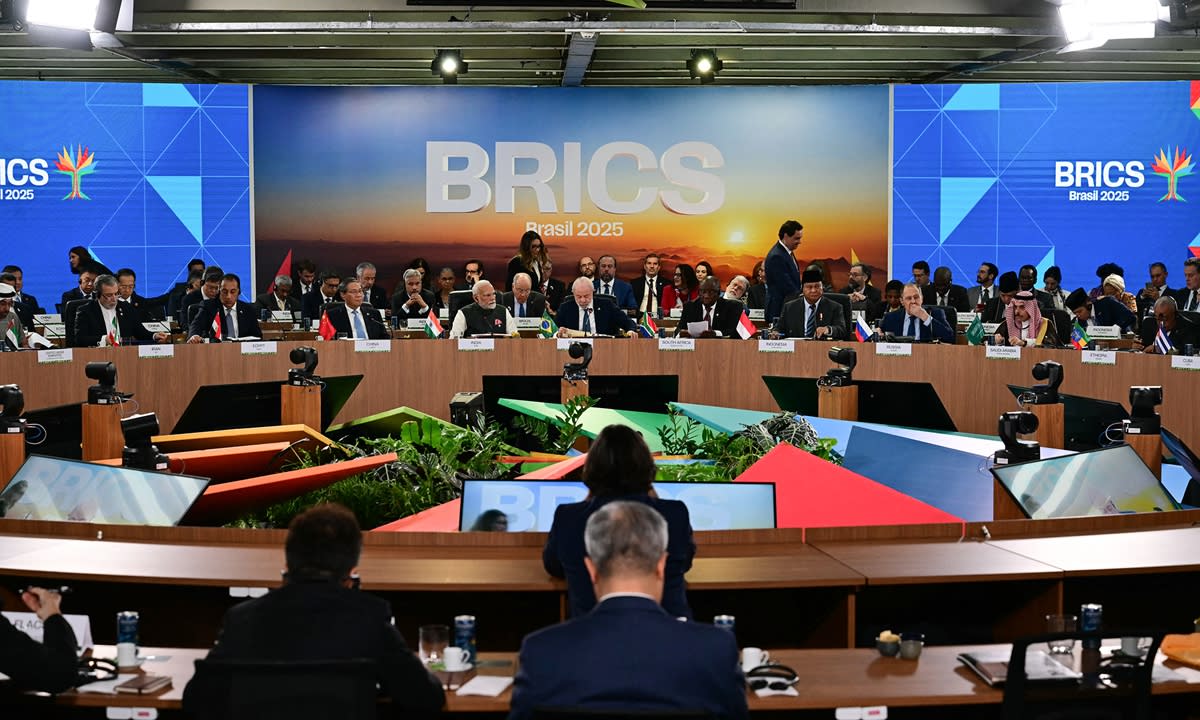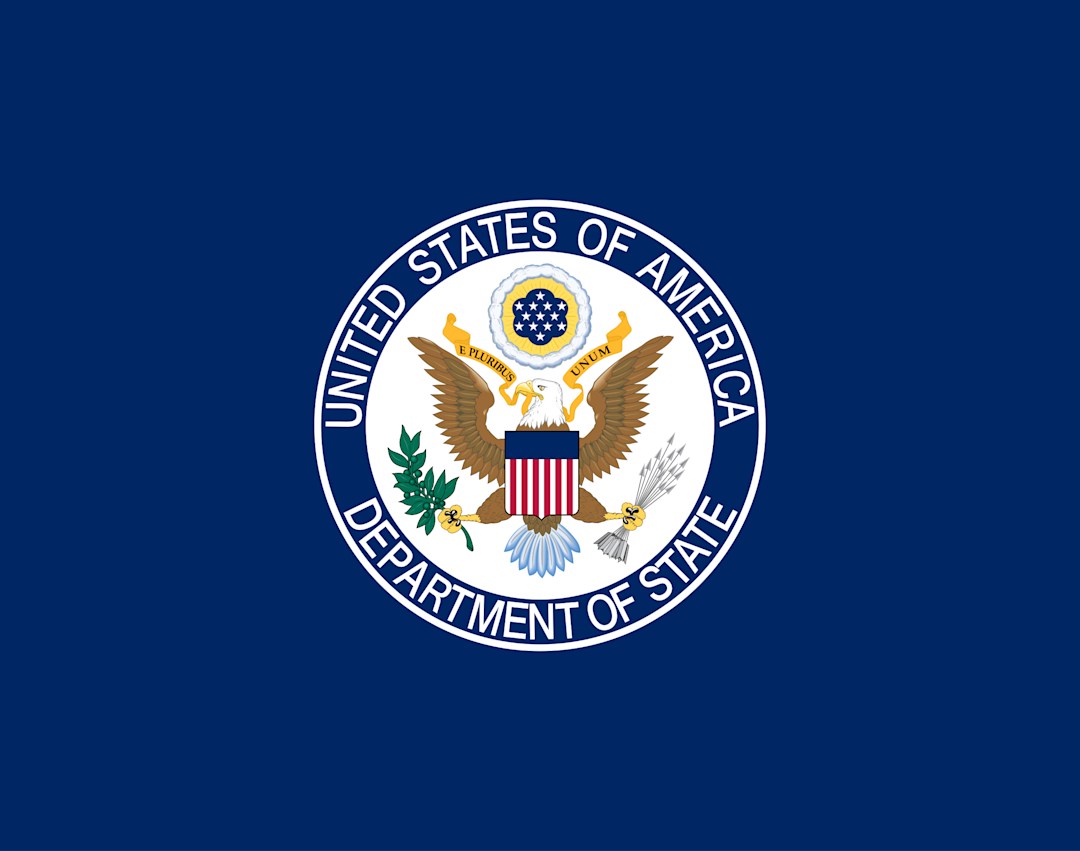Rethinking multilateralism in the era of the Global South

From 6th to 7th July 2025, the 17th BRICS+ summit was held in Rio de Janeiro, bringing together the leaders of Brazil, Russia, India, China, South Africa, Egypt, Ethiopia, Iran, the United Arab Emirates, and Indonesia, as well as a dozen other heads of state, most of whom were from the ‘Global South’.
The ‘Global South’ thus brings together countries that share a common history marked by colonisation, underdevelopment and political marginalisation. First appearing in the 1990s, the term has recently gained traction in public debate. It gained a particular visibility in 2022, when many African, Asian and South American countries refused to condemn Russia's aggression against Ukraine. This position revealed a rift with the West and reflected the Global South's refusal to systematically align itself with the decisions of the major Western powers. Today, it represents nearly 85% of the world's population and its share of the global economy continues to grow, rising from 44% of global GDP in 2000 to over 60% in 2023.
Given its increasingly important position, it is seeking to assert its rights on the international stage, particularly in the context of the crisis facing the multilateral system historically established by Western countries.
Historical tensions between Southern countries and the Western-dominated international system
Since the end of the Second World War, Southern countries have been integrated into an international order dominated by Western powers, where global economic and political institutions such as the UN, the IMF and the World Bank primarily reflected the interests of the North. The Bandung Conference in 1955 marked the first collective attempt by recently decolonised states to assert their sovereignty and denounce the relationships of dependency inherited from colonisation. The Non-Aligned Movement, founded in 1961, continued this momentum by rejecting the bipolar logic of the Cold War, but these countries remained marginalised on the international stage. In the 1970s, the New International Economic Order project expressed their desire to transform unfair economic structures based on unfavourable trade and technological domination by the North. However, the failure of these initiatives illustrates the persistence of a global hierarchy in which the development of the South remains constrained by rules established by Western powers.
More recently, a series of crises (Covid-19, war in Ukraine) has exacerbated the financial difficulties of Southern countries and justified the acceleration of their demands and calls for major reforms of the global order. On the one hand, they have been confronted with the priority given by developed countries to their own populations in terms of access to vaccines during the Covid-19 pandemic. On the other hand, the war in Ukraine has exacerbated their economic and financial difficulties, particularly due to the increase in oil and food prices.
Thus, despite the South's historic attempts at emancipation, the structure of the international system remains dominated by the major powers. It is in this context of persistent imbalances that recent crises have reignited frustrations and encouraged new strategies of assertiveness.
The Affirmation of the Global South in the Context of the Crisis of Multilateralism: Multi-Alignment
The loss of confidence in multilateral institutions, perceived as tools used by the North to maintain its hegemony, is pushing countries in the South to invent alternative forms of cooperation, marked by pragmatism and the quest for autonomy. In this regard, multi-alignment is a strategy that consists of diversifying their alliances with the major power centres in order to defend their interests. This pragmatic and flexible diplomacy breaks with the ideological non-alignment of the 20th century in favour of transactional and reversible partnerships based on the pursuit of strategic autonomy.
For example, India maintains relations with major powers in order to develop a strategy of independence and neutrality: China (despite historically tense relations), the West (for economic, security and defence issues), Russia (for military equipment and despite its disagreement with the invasion of Ukraine), and finally the BRICS (to maintain its influence in the countries of the Global South).
Another relevant example is South Africa, which is implementing a multi-alignment strategy on several fronts. In the diplomatic arena, it is working with Russia to negotiate a solution to the war in Ukraine, which is affecting its economic interests. Militarily, although formally committed to the principle of non-alignment, it regularly participates in joint exercises with Western countries (the United States, France, Germany) and with partners in the Global South (India, Brazil, and recently China and Russia). Economically, it maintains diversified trade relations: its main trading partners include China, the United States, Germany and other BRICS+ members. It also exports weapons to countries in the Middle East (United Arab Emirates and Saudi Arabia) and North Africa (Egypt), consolidating its position in the international defence market.
This strategy illustrates the crisis of multilateralism and the phenomenon of ‘contested multilateralism’, insofar as international cooperation is becoming fragmented and pluralised: states, dissatisfied with the existing multilateral system, are developing alternative forms of cooperation. Thus, far from withdrawing from the international arena, the countries of the South are redefining the rules of global cooperation, multiplying flexible alliances to emancipate themselves from their historically dominant relations and exert greater influence in a changing international order.
References:
Acharya, A. (2014). Who Are the Norm Makers? The Asian-African Conference in Bandung and the Evolution of Norms. Global Governance, 20(3), 405-417.
Ben Hammouda, H. (2024). Multi-alignement et de-risking. Les réponses du Sud global à la fragmentation du monde. Notes de l’Ifri.
Delcourt, L. (2024). BRICS+ : une perspective critique. Dans Sous la direction de L. Delcourt BRICS+ : une alternative pour le Sud global ? : Points de vue du Sud (p. 7-29). Éditions Syllepse.
Ishmael, L. (2023). The New South in a Multipolar World Multi-Alignment or Fence Sitting? Policy Center for the New South.
Israel, M. (2024). G77+China and a New International Economic Order (NIEO). Developpment Watch Center.
Lüthi, L. M. (2016). The Non-Aligned Movement and the Cold War, 1961-1973. Journal of Cold War Studies, 18(4), 98–147.
Morse, J.-C., Keohane, R.-O. (2014). Contested multilateralism.
Ramel, F. (2024). Un autre regard sur le multilatéralisme. Études, Novembre (11), 7-17.
Université de Genève (2025). Evènements : Le Sud global face à la crise du multilatéralisme.



